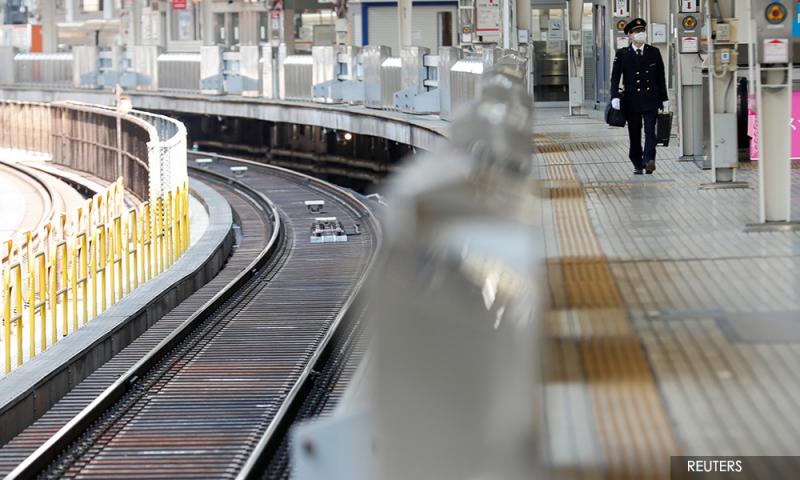Japan's Parliament to pass US$241b extra budget to combat pandemic fallout
CORONAVIRUS | Japan’s Parliament is set to approve today a US$241 billion supplementary budget to fund a record stimulus package featuring cash payouts and loans to cash-strapped firms to cushion the economic blow from the coronavirus pandemic.
But the deepening pain from the pandemic, which has forced residents to stay home and businesses to shut down, is already drawing calls from politicians for even bigger spending.
With the Bank of Japan pledging on Monday to buy unlimited amounts of bonds to keep borrowing costs low, Japan is set to follow the footsteps of other major economies towards “helicopter money” - money-printing by central banks to finance government debt.
“The steps taken so far are for crisis response and could be temporary. But if the crisis is prolonged, they could be readily strengthened,” said Chotaro Morita, chief bond strategist at SMBC Nikko Securities.
“This could mark the beginning of an integration between fiscal and monetary policies.”
The supplementary budget, sized at 25.7 trillion yen, will fund part of a US$1.1 trillion stimulus package Prime Minister Shinzo Abe unveiled earlier this month to combat the widening fallout from the health crisis.
The package features cash payouts of 100,000 yen per citizen, a move Abe said would offer broad aid to households which saw income fall sharply due to job losses or declines in work hours.
While passing the budget will take less time than usual, bureaucratic red tape will mean it will likely take until late May for the money to reach recipients, analysts say.
The plan could also cost more for fewer benefits than Abe’s earlier plan for targeted payouts to households hardest hit by the pandemic.
Given Japanese households’ tendency to save rather than spend, much of the cash payouts may end up in savings or spending on necessities, limiting their impact on growth, some analysts say.
Despite costing the government more than 12 trillion yen, blanket cash payouts would only push up Japan’s economic growth by up to 0.6 percentage points, said Hideo Kumano, chief economist at Dai-ichi Life Research Institute.
“The impacts on stimulating consumption will be small because many consumers will still refrain from going out for spending,” he said.
In addition to the cash payouts to households and small firms, the stimulus package includes the cost of beefing up medical systems to cope with the new virus and 1 trillion yen in extra subsidies for local governments.
Abe has already come under pressure for more spending such as subsidising rents for businesses forced to suspend operations and university fees for students struggling to make ends meet.
The government is considering extending the nationwide emergency, currently due to end May 6, by about one month, domestic media reported.
The national tally stands at 13,895 coronavirus infections, including 413 deaths. - Reuters
Keep up with the latest information on the outbreak in the country with Malaysiakini's free Covid-19 tracker.
Malaysiakini is providing free access to the most important updates on the coronavirus pandemic. You can find them here.
Help keep independent media alive - subscribe to Malaysiakini.
RM12.50 / month
- Unlimited access to award-winning journalism
- Comment and share your opinions on all our articles
- Gift interesting stories to your friends
- Tax deductable

 Reuters
Reuters